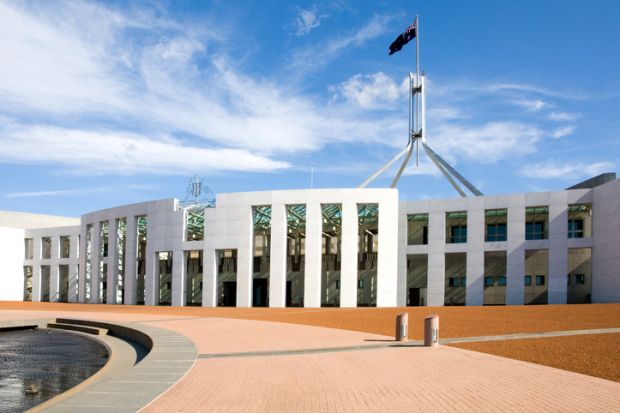“Robust” international education earnings are generating an unexpected surge in Australia’s gross domestic product (GDP), the federal government’s mid-year budget statement says.
Net exports driven by the “ongoing recovery in international demand for higher education services” are now expected to make a stronger contribution to economic growth than the government forecasted in its May budget, according to the Mid-year Economic and Fiscal Outlook (MYEFO) released on 13 December.
The improvement in export income will add 1 percentage point to GDP growth this financial year and another three-quarters of a percentage point in 2024-25. This will offset the impact of inflation and high interest rates, producing a net increase in economic growth of one-quarter of a percentage point in both 2023 and 2024.
Higher loan repayments from domestic student loans will also offset a looming decline in the government’s non-tax revenue, the statement says.
Treasury has calculated the fair value of outstanding student debt at A$46.7 billion (£24.4 billion) across almost 3 million borrowers. Average repayment times for students who have cleared their debts are now nudging 10 years.
MYEFO outlines A$103 million in increased government spending over four years to implement the reforms announced so far through the Australian Universities Accord. This will stretch to more than half a billion dollars over 11 years, with the bulk spent on extending demand-driven university places to all indigenous students.
However, the statement also outlines a A$112 million reduction in education spending over four years, mainly through cuts to research schemes. They include a A$46 million decrease in funding for the new research commercialisation fund, Australia’s Economic Accelerator.
Science & Technology Australia president Sharath Sriram said it was a step in the wrong direction. “Australia urgently needs to invest more – not less – in research and development to generate the next wave of new jobs and income to secure the living standards of our kids and grandkids,” he said.
The final report of the Universities Accord panel is expected to be released in February after being handed to the government before Christmas.
A separate working group of federal, state and territory government representatives is examining universities’ governance, their compliance with workplace laws and their efforts to keep students and staff safe. The group has been instructed to produce a draft action plan for education ministers to consider in early 2024.
Register to continue
Why register?
- Registration is free and only takes a moment
- Once registered, you can read 3 articles a month
- Sign up for our newsletter
Subscribe
Or subscribe for unlimited access to:
- Unlimited access to news, views, insights & reviews
- Digital editions
- Digital access to THE’s university and college rankings analysis
Already registered or a current subscriber? Login








